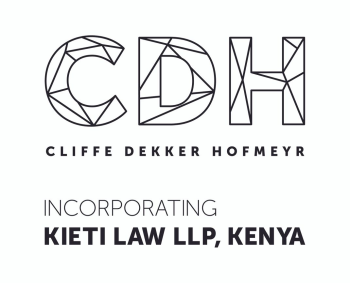In Commissioner for SARS v Sunflower Distributors CC(1) the High Court recently decided whether a provisional preservation order granted in favour of the South African Revenue Service (SARS) should be made final.
First respondent Sunflower Distributors was placed under a final winding-up order on September 15 2015, after the provisional order was granted on July 28 2015. The author of the SARS founding affidavit stated that the preservation order was applied for as an interim measure to preserve realisable assets until the final winding-up order was granted and the master of the High Court had appointed final liquidators to take charge of the assets. The provisional preservation order was granted on September 8 2015.
The provisional preservation order was obtained in terms of Section 163 of the Tax Administration Act (28/2011), after an ex parte application was brought by SARS in the High Court. The basis for the ex parte application and the grant of the provisional preservation order was the allegation that the respondents were involved in an elaborate value added tax (VAT) scheme.
The key issue in this case was whether the evidence presented by SARS justified the grant of the final preservation order. The second respondent objected that SARS' founding affidavit relied on hearsay evidence and that a letter written to SARS by the first respondent's auditor, Mr Van der Linde, was material to SARS' application and had not been annexed to the affidavit. The second respondent argued that the failure to annex this letter and the reliance on hearsay evidence in the founding affidavit were material omissions meaning that SARS' application could not be granted.
SARS' founding affidavit referred to the findings of Mr Swanepoel, a SARS official who had conducted a VAT audit of the first respondent. Van der Linde was an auditor at an auditing firm which had been appointed by the first respondent. Van der Linde assisted the first respondent with the VAT audit. In applying for the final preservation order, SARS referred to the audit, which Swanepoel had conducted by randomly choosing 10 examples of transactions that were conducted during the tax period in issue (July 2011). A letter of findings was subsequently sent to Van der Linde on November 8 2011. Van der Linde responded to the letter of findings in a letter dated November 22 2011. This response dealt extensively with the alleged administrative failures of the first respondent to claim certain input tax, identified in the letter of findings of November 8 2011. The thrust of Van der Linde's detailed letter was that the first respondent was:
- entitled to deduct the input tax that it paid to its suppliers from the output tax which the client that it supplied paid to it; and
- not operating a VAT scheme.
The court held that as the application for a provisional preservation order was an ex parte application, SARS had a duty to act in the utmost good faith. The court stated that it would not hold itself bound by any order obtained where there was a misapprehension of the true facts.
Where an applicant obtained relief but did not disclose all the necessary facts in its application, the court will consider the following factors in deciding whether to grant final relief:
- the extent to which the rule of disclosure has been breached;
- the reasons for the non-disclosure;
- the extent to which the first court might have been influenced by proper disclosure; and
- the consequences, from the point of doing justice between the parties.
The effect of the failure to annex Van der Linde's letter or deal with it in the founding affidavit meant that SARS had not complied with its duty to act with the utmost faith. Coupled with the significant hearsay evidence relied on by SARS in its founding affidavit, the court decided not to confirm the provisional order.
Section 163 of the Tax Administration Act is a far-reaching provision which can have a significant impact on the business or livelihood of a taxpayer, since it prevents the taxpayer from dealing with its assets. This judgment provides some comfort to taxpayers facing such an application by SARS. It shows that the court will not easily grant such an order in favour of SARS and that SARS must provide full disclosure of all the relevant facts.
For further information on this topic please contact Heinrich Louw at Cliffe Dekker Hofmeyr by telephone (+27 11 562 1000) or email ([email protected]). The Cliffe Dekker Hofmeyr website can be accessed at www.cliffedekkerhofmeyr.com.
Endnotes
(1) (66077/2015) [2015] ZAGPPHC 896, November 17 2015.
This article was first published by the International Law Office, a premium online legal update service for major companies and law firms worldwide. Register for a free subscription.



